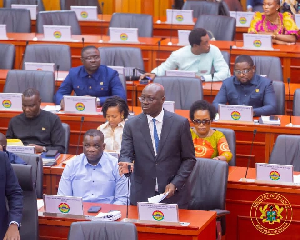Accra — Last Thursday, several departments and units of the nation's premier health facility - the Korle-Bu Teaching Hospital - went without electricity for almost the whole day.
As reported on the front page, work at the affected units came to a virtual standstill
The power outage occurred when a cable linking the hospitals standby generators to Substation E, which happens to be the biggest of the seven substations that supply electricity to the health facility, blew up supposedly as a result of overloading.
As admitted by the hospital's PRO, Mustapha Salifu and the head of Electricals Emmanuel Bakatu, some of the power cables need to be changed as they have been underground for far too long.
With constant expansion of facilities and with the use of more electricity consuming medical equipment, the power transformers at the hospital seem to be taking more than they can handle.
It would be recalled that similar problems have occurred in the past with doctors complaining about frequent power outages.
The state of affairs at the hospital regarding electricity supply clearly points to the need for renewal of cable and power supply infrastructure if a major disaster is to be averted.
Korle Bu is Ghana's premier and largest hospital. It's place in health delivery in Ghana is peerless. For most Ghanaians, it is the last stop in their search for relief for their infirmities.
It is for this reason that Public Agenda would like government to take a serious look at the power situation at our hospitals. Ghanaians have, in their homes, learnt to live with the intermittent power outages without losing their lives.
Sick people, however, whose lives are dependent on life supporting systems that are powered by electricity, cannot be put through the drudgery power outages bring.
Indeed, it is the considered opinion of this paper that no patient should either lose their lives or have their conditions worsened because a power outage has cut short the work of doctors.
General News of Tuesday, 13 April 2010
Source: Public Agenda












